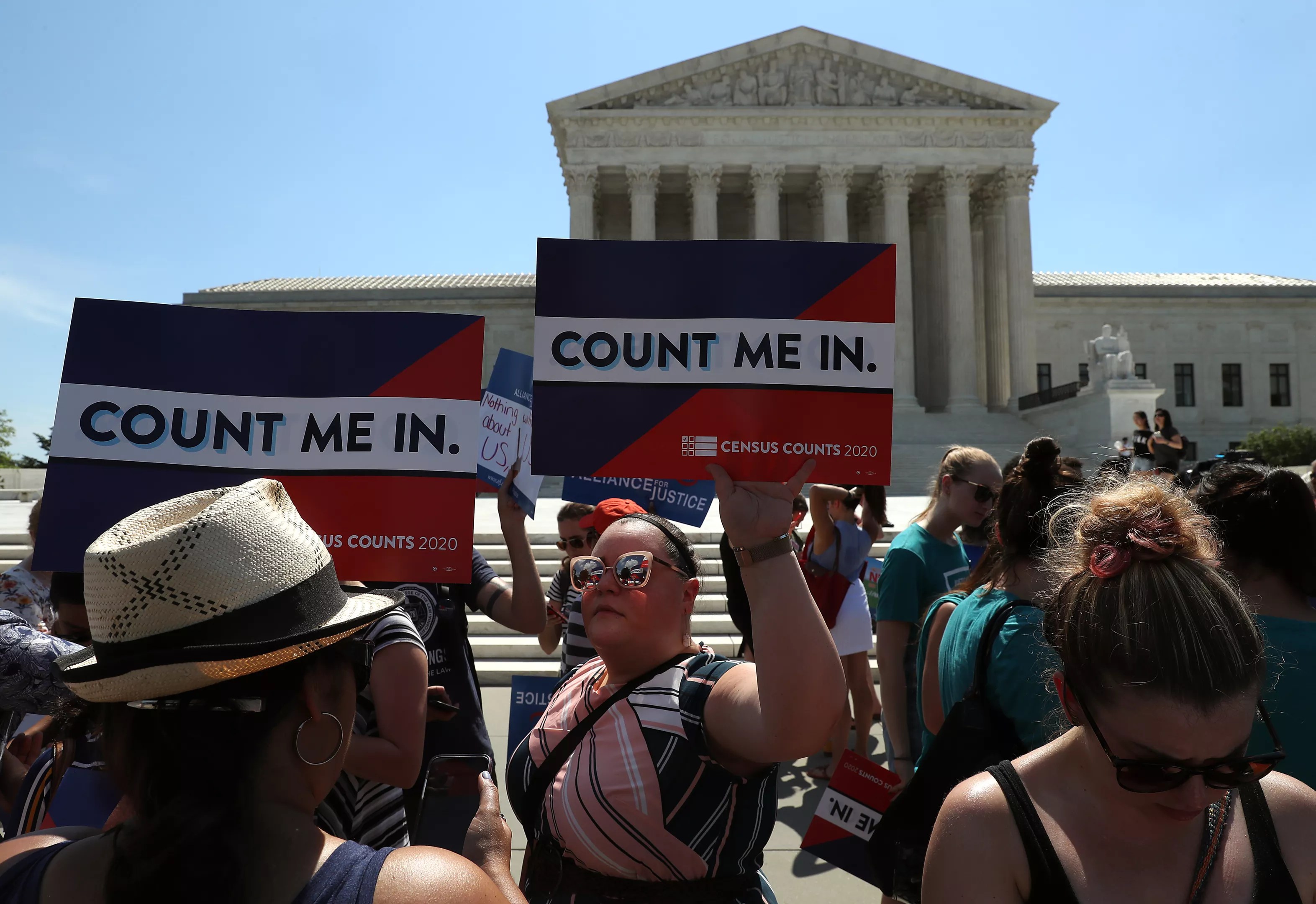
Mark Wilson / Getty Images

Audio By Carbonatix
Many adults in the United States wrongly believe this year’s census will be about citizenship status, and some worry about participating because of it, according to two recent studies.
Dallas-area immigrant and refugee organizations say that concern and confusion are symptomatic of the Trump administration’s efforts to reduce immigration to the country.
“There’s a very deep and understandable fear in immigrant communities,” said Bill Holston, executive director of the Human Rights Initiative of North Texas.
Last week, the Urban Institute, a Washington, D.C.-based think tank, released a report indicating that a third of U.S. adults, and 40% of nonwhite and Hispanic adults and adults in immigrant households, are very concerned about how the information they provide on the census will be used. Of those surveyed, 31.6% also think the data gathered during the census will be used to find undocumented residents.
Every 10 years, the U.S. Constitution mandates that the government count and survey United States residents to gather vital statistics that help determine programs and funding for communities, social services and infrastructure.
But according to a Pew Research Center survey released earlier this month, 56% of adults in the U.S. think that citizenship will be part of this year’s census, although it will not be.
The Trump administration did propose adding a question about citizenship to the census, but in June, the Supreme Court ruled that while it is not inherently unconstitutional to include a citizenship question on the census, the reason the administration gave was not an acceptable reason to do so.
Although the Supreme Court shot down the citizenship question officially, the concern and distrust aren’t particularly surprising because of the way the administration has spoken about and dealt with immigration. The actions have created a “climate of mistrust,” Holston said.
He referred to recent instances in which Immigration and Customs Enforcement agents have arrested undocumented immigrants seeking basic medical attention and services, outside school and work, when they went to scheduled check-ins with ICE itself, and an incident reported by The Washington Post in which a 19-year-old Honduran man seeking asylum might be deported because of something he said in a therapy session he believed was confidential.
Whereas in years past, law enforcement and ICE officials have worked to gain trust in immigrant communities, their actions under the Trump administration have made people wary of interacting with any kind of government official or program, including responding to the census and mailing it back, Holston said.
“There’s no way to make people feel safe. It’s hard to accept the government’s word.” — Bill Holston, Human Rights Initiative of North Texas
“There’s no way to make people feel safe,” Holston said. “It’s hard to accept the government’s word.”
But some organizations are working to overcome the fear. When members of the immigration support and civic engagement group Mi Familia Vota go out into the community, they do hear concern about confidentiality and citizenship, said Liz Magallanes, the group’s Dallas coordinator.
“[The census has been] highly politicized even though it’s not a partisan thing … so we’re definitely fighting that narrative,” she said.
However, once people understand that the census will help their children and education, and that their confidentiality is legally protected, they become more comfortable.
“Once folks hear that, more than anything they’re empowered,” she said.
Many immigrants come to the country to build better lives for themselves and their children. Understanding that the census will help in that mission makes them want to participate, Magallanes said.
And, for the first time, it will be possible to take the census online. Many Americans are hesitant to open their doors to strangers, and immigrants are even more so, Magallanes said. They’ll be more likely to respond online, knowing they don’t have to open up to an unknown person at the door.
In the last three years, the Trump administration has significantly limited who can enter the country, lowered the number of refugees allowed in each year, tried to limit public benefits usage for green card applicants and proposed doubling the amount of time asylum seekers must wait to apply for a work permit.
Immigrant organizations have told the Observer that these new rules and proposals will disproportionately affect low-income immigrants and that each new proposal has sparked a new concern in Dallas immigrant communities. The concern over census questions is the latest in that string of fears.
While the fear and hesitance to participate in the census are understandable, Holston still hopes Dallas residents do so because of the valuable information it will yield about their communities. Census data can be used to increase community funding and resources. He also believes it’s safe to participate.
“Without [the citizenship question] on the census,” he said, “it’s hard to imagine how information from the census is going to put people at risk.”